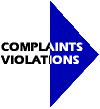| We, the Signatories of this Charter,
recognize that:
Communication is basic to the life
of all individuals and their communities. All people are entitled to participate
in communication, and in making decisions about communication within and
between societies. The majority of the world's peoples lack minimal technological
resources for survival and communication. Over half of them have not yet
made a single telephone call. Commercialization of media and concentration
of media ownership erode the public sphere and fail to provide for cultural
and information needs, including the plurality of opinions and the diversity
of cultural expressions and languages necessary for democracy. Massive
and pervasive media violence polarizes societies, exacerbates conflict,
and cultivates fear and mistrust, making people vulnerable and dependent.
Stereotypical portrayals misrepresent all of us and stigmatize those who
are the most vulnerable. Therefore, we ratify this Charter defining communication
rights and responsibilities to be observed in democratic countries and
in international law.
|


|
Article 1. Respect.
All people are entitled to be treated
with respect, according to the basic human rights standards of dignity,
integrity, identity, and non- discrimination.
Article 2. Freedom.
All people have the right of access
to communication channels independent of governmental or commercial control.
Article 3. Access.
In order to exercise their rights,
people should have fair and equitable access to local and global resources
and facilities for conventional and advanced channels of communication;
to receive opinions, information and ideas in a language they normally
use and understand; to receive a range of cultural products designed for
a wide variety of tastes and interests; and to have easy access to facts
about ownership of media and sources of information. Restrictions on access
to information should be permissible only for good and compelling reason,
as when prescribed by international human rights standards or necessary
for the protection of a democratic society or the basic rights of others.
Article 4. Independence.
The realization of people's right
to participate in, contribute to and benefit from the development of self-reliant
communication structures requires international assistance to the development
of independent media; training programmes for professional mediaworkers;
the establishment of independent, representative associations, syndicates
or trade unions of journalists and associations of editors and publishers;
and the adoption of international standards.
Article 5. Literacy.
All people have the right to acquire
information and skills necessary to participate fully in public deliberation
and communication. This requires facility in reading, writing, and storytelling;
critical media awareness; computer literacy; and education about the role
of communication in society .
Article 6. Protection of
journalists.
Journalists must be accorded full
protection of the law, including international humanitarian law , especially
in areas of armed conflict. They must have safe, unrestricted access to
sources of information, and must be able to seek remedy, when required,
through an international body.
Article 7. Right of reply
and redress.
All people have the right of reply
and to demand penalties for damage from media misinformation. Individuals
concerned should have an opportunity to correct, without undue delay, statements
relating to them which they have a justified interest in having corrected.
Such corrections should be given the same prominence as the original expression.
States should impose penalties for proven damage, or require corrections,
where a court of law has determined that an information provider has wilfully
disseminated inaccurate or misleading and damaging information, or has
facilitated the dissemination of such information.
Article 8. Cultural identity.
All people have the right to protect
their cultural identity. This includes the respect for people's pursuit
of their cultural development and the right to free expression in languages
they understand. People' s right to the protection of their cultural space
and heritage should not violate other human rights or provisions of this
Charter.
Article 9. Diversity of Languages.
All people have the right to a diversity
of languages. This includes the right to express themselves and have access
to information in their own language, the right to use their own languages
in educational institutions funded by the state, and the right to have
adequate provisions created for the use of minority languages where needed.
Article 10. Participation in
policy making.
All people have the right to participate
in public decision-making about the provision of information; the development
and utilization of knowledge; the preservation, protection and development
of culture; the choice and application of communication technologies; and
the structure and policies of media industries.
|










|
Article 11. Children's Rights.
Children have the right to mass media
products that are designed to meet their needs and interests and foster
their healthy physical, mental and emotional development.. They should
be protected from harmful media products and from commercial and other
exploitation at home, in school and at places of play, work, or business.
Nations should take steps to produce and distribute widely high quality
cultural and entertainment materials created for children in their own
languages.
Article 12. Cyberspace.
All people have a right to universal
access to and equitable use of cyberspace. Their rights to free and open
communities in cyberspace, their freedom of electronic expression, and
their freedom from electronic surveiilance and intrusion, should be protected.
Article 13. Privacy.
All people have the right to be protected
from the publication of allegations irrelevant to the public interest,
or of private photographs or other private communication without authorization,
or of personal information given or received in confidence. Databases derived
from personal or workplace communications or transactions should not be
used for unauthorized commercial or general surveillance purposes. However,
nations should take care that the protection of privacy does not unduly
interfere with the freedom of expression or the administration of justice.
Article 14. Harm.
People have the right to demand that
media actively counter incitement to hate, prejudice, violence, and war.
Violence should not be presented as normal, "manly", or entertaining,
and true consequences of and alternatives to violence should be shown.
Other violations of human dignity and integrity to be avoided include stereotypic
images that distort the realities and complexities of people's lives. Media
should not ridicule, stigmatize, or demonize people on the basis of gender,
race, class, ethnicity, language, sexual orientation, and physical or mental
condition.
Article 15. Justice.
People have the right to demand that
media respect standards of due process in the coverage of trials. This
implies that the media should not presume guilt before a verdict of guilt,
invade the privacy of defendants, and should not televise criminal trials
in real time, while the trial is in progress.
Article 16. Consumption.
People have the right to useful and
factual consumer information and to be protected against misleading and
distorted information. Media should avoid and, if necessary, expose promotion
disguised as news and entertainment (infomercials, product placement, children's
programmes that use franchised characters and toys, etc), and the creation
of wasteful, unnecessary, harmful or ecologically damaging needs, wants,
products and activities. Advertising directed at children should receive
special scrutiny.
Article 17. Accountability.
People have the right to hold media
accountable to the general public and their adherence to the standards
established in this Charter. For that purpose, media should establish mechanisms,
including self- regulatory bodies, that monitor and account for measures
taken to achieve compliance.
Article 18. Implementation.
In consultation with the Signatories,
national and international mechanisms will be organized to publicize this
Charter; to implement it in as many countries as possible and in international
law; monitor and assess the performance of countries and media in light
of these Standards; receive complaints about violations; advise on adequate
remedial measures; and to establish procedures for periodic review, development
and modification of this Charter.
PCC, p/a Society for Old and New Media,
Nieuwmarkt 4, 1012 CR Amsterdam, phone: +31 20 5579898, fax: +31 20 5579880 pccmaster@waag.org
|










|
|

